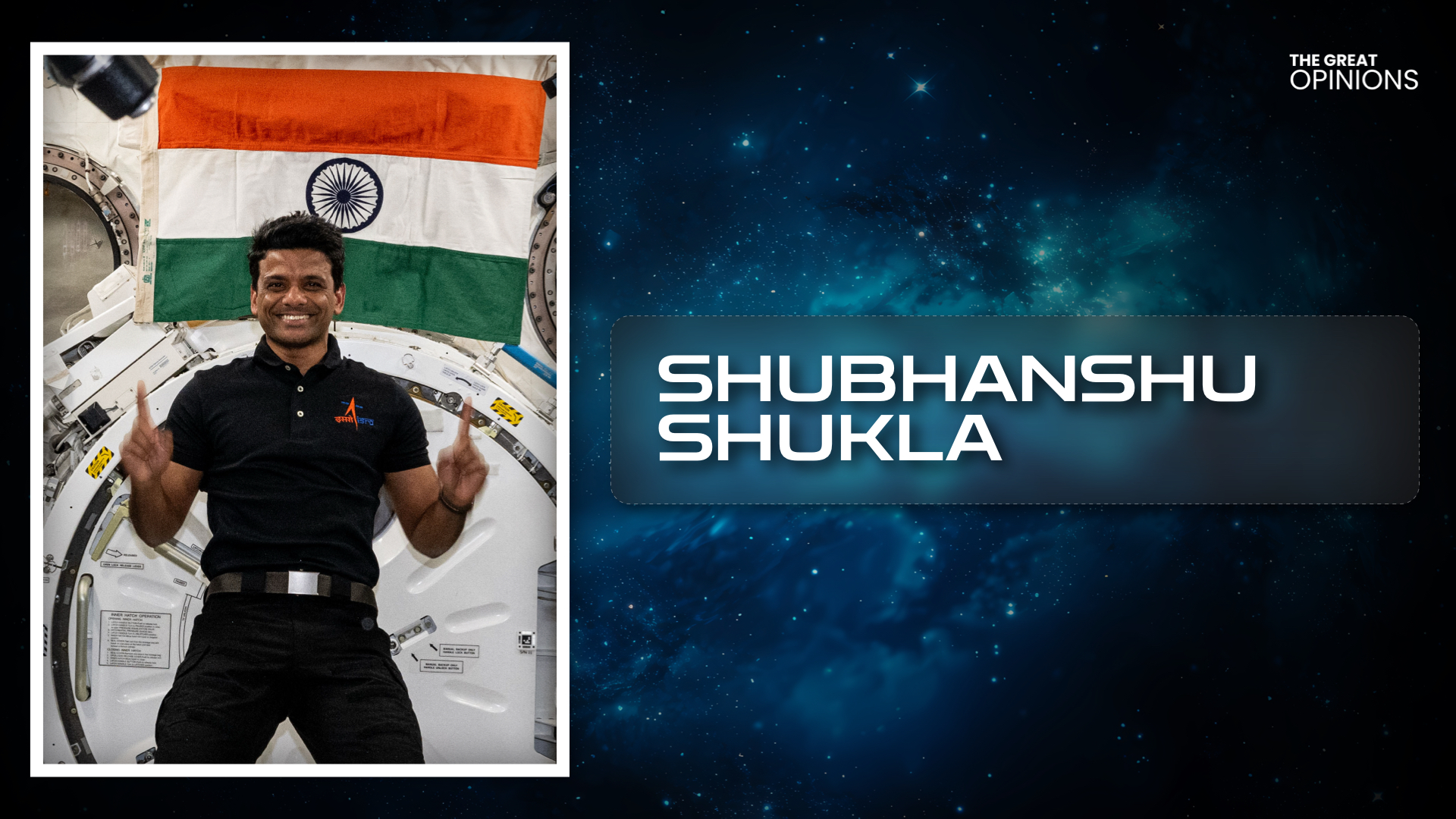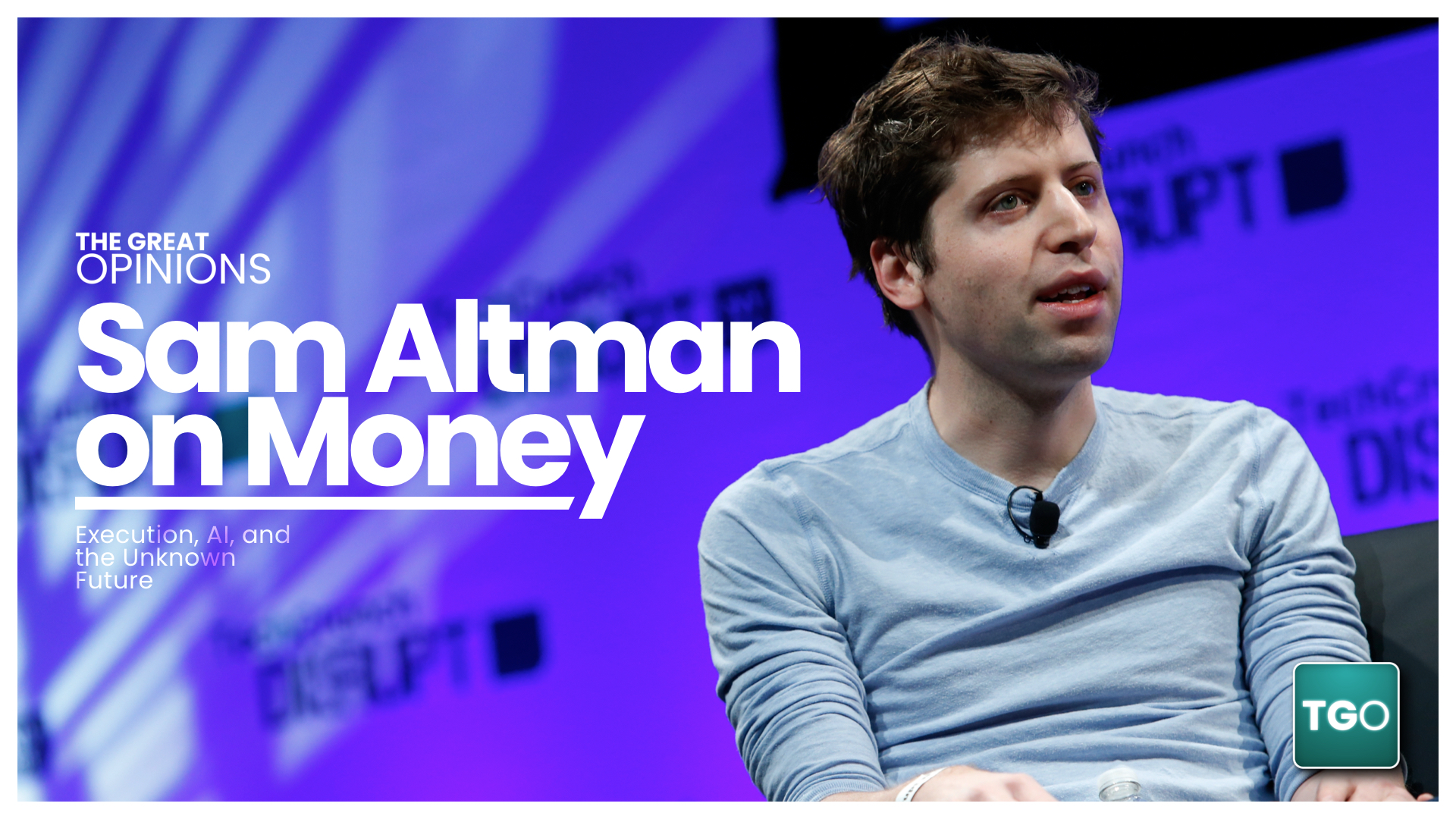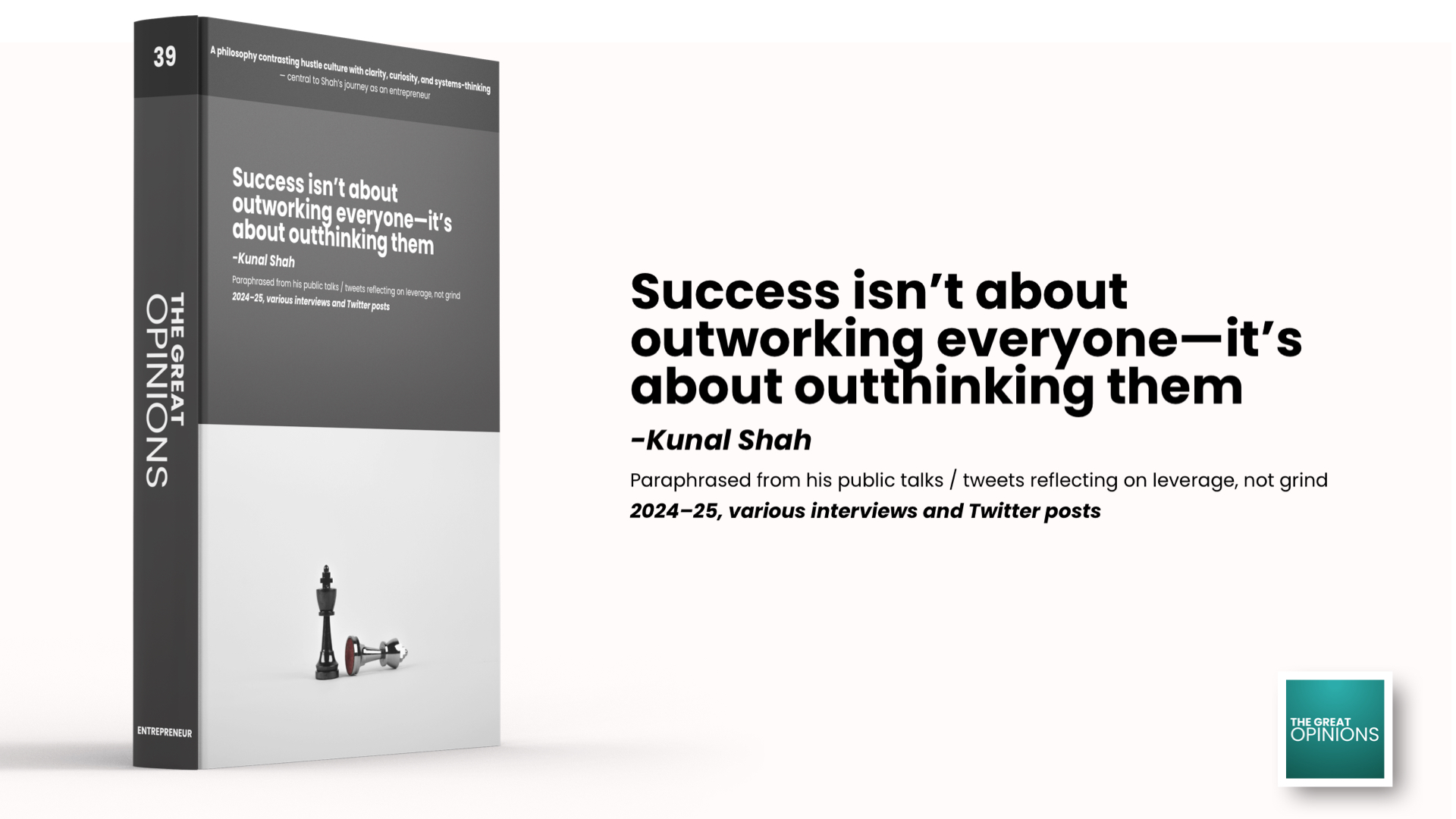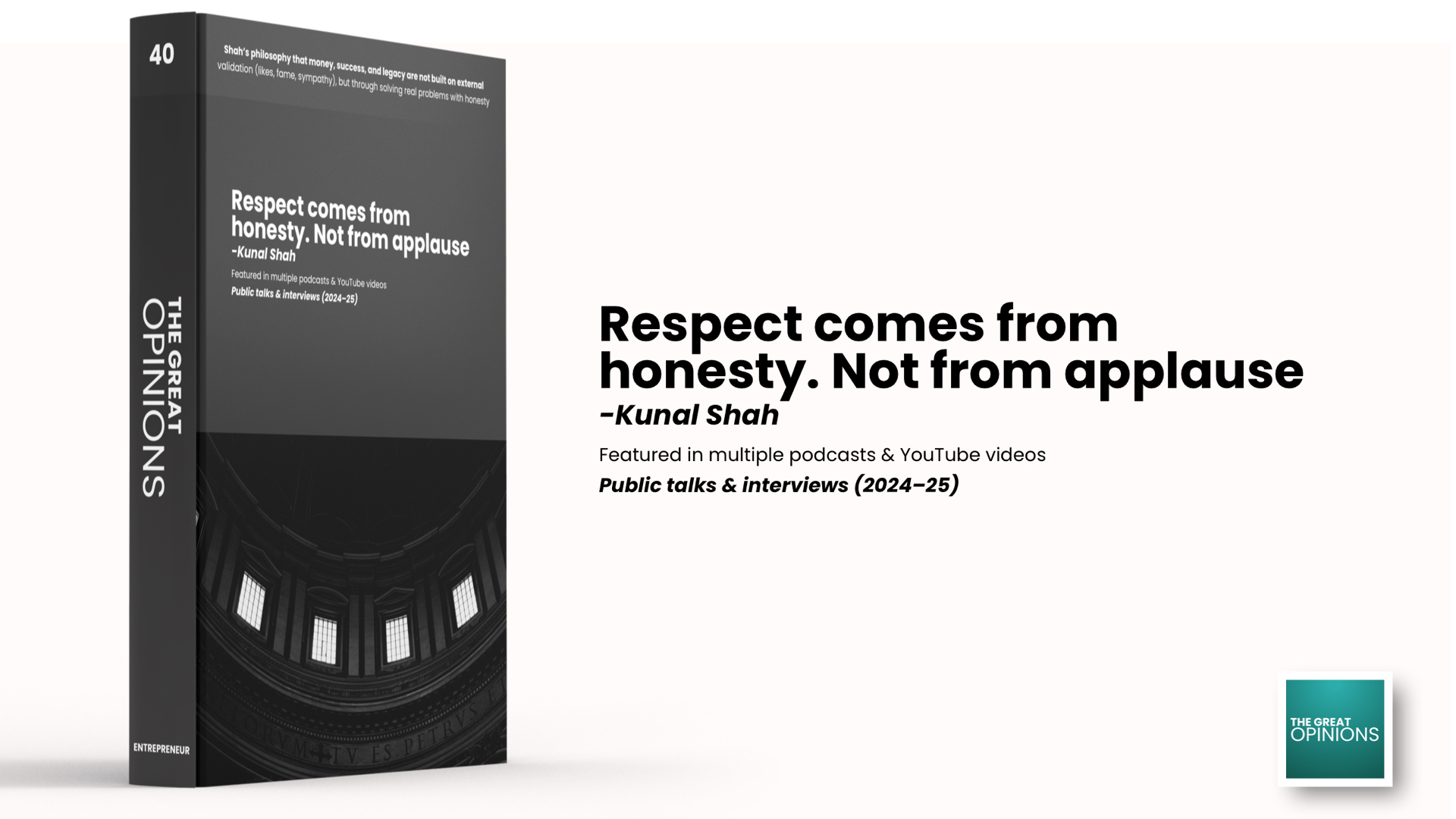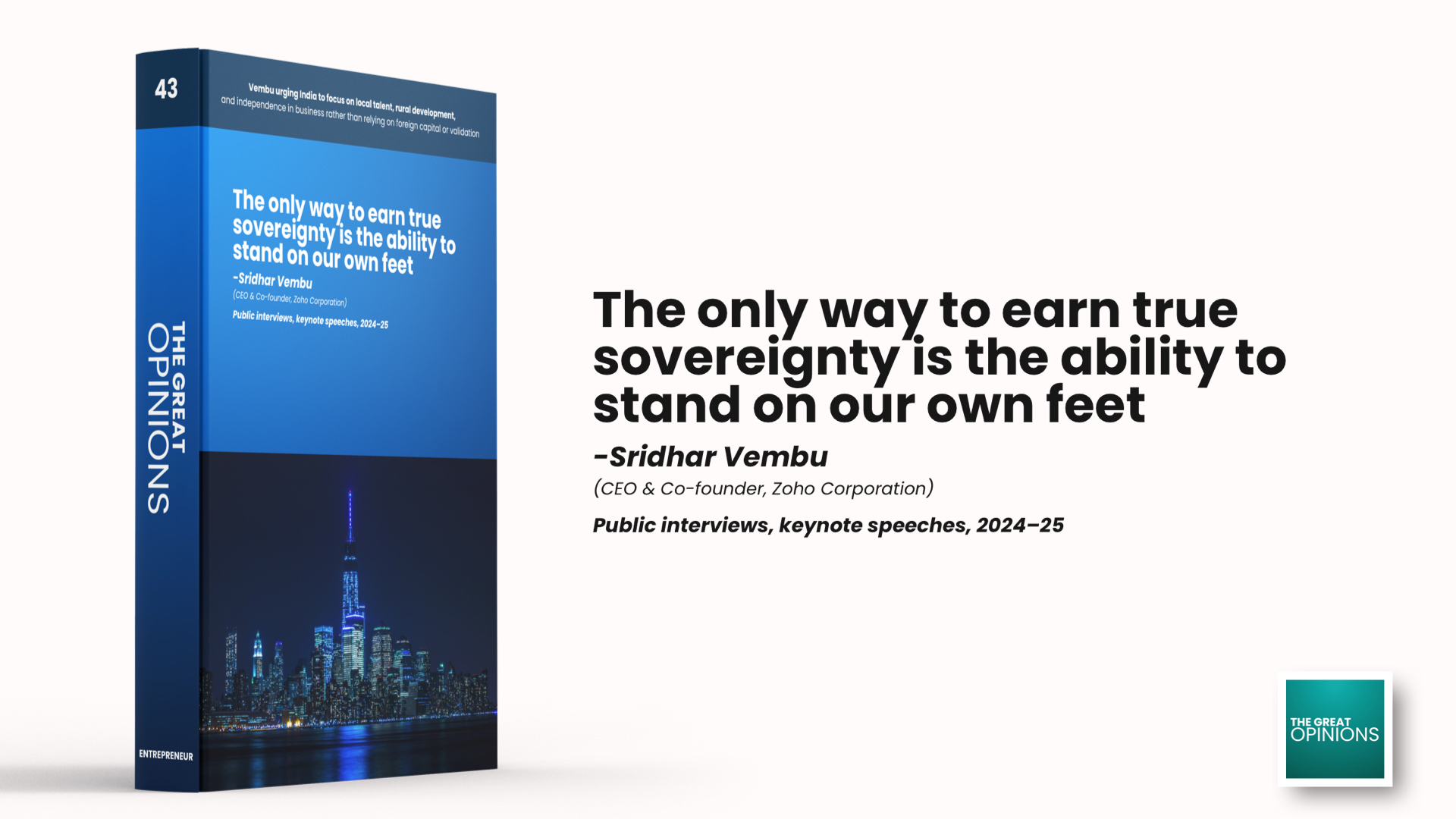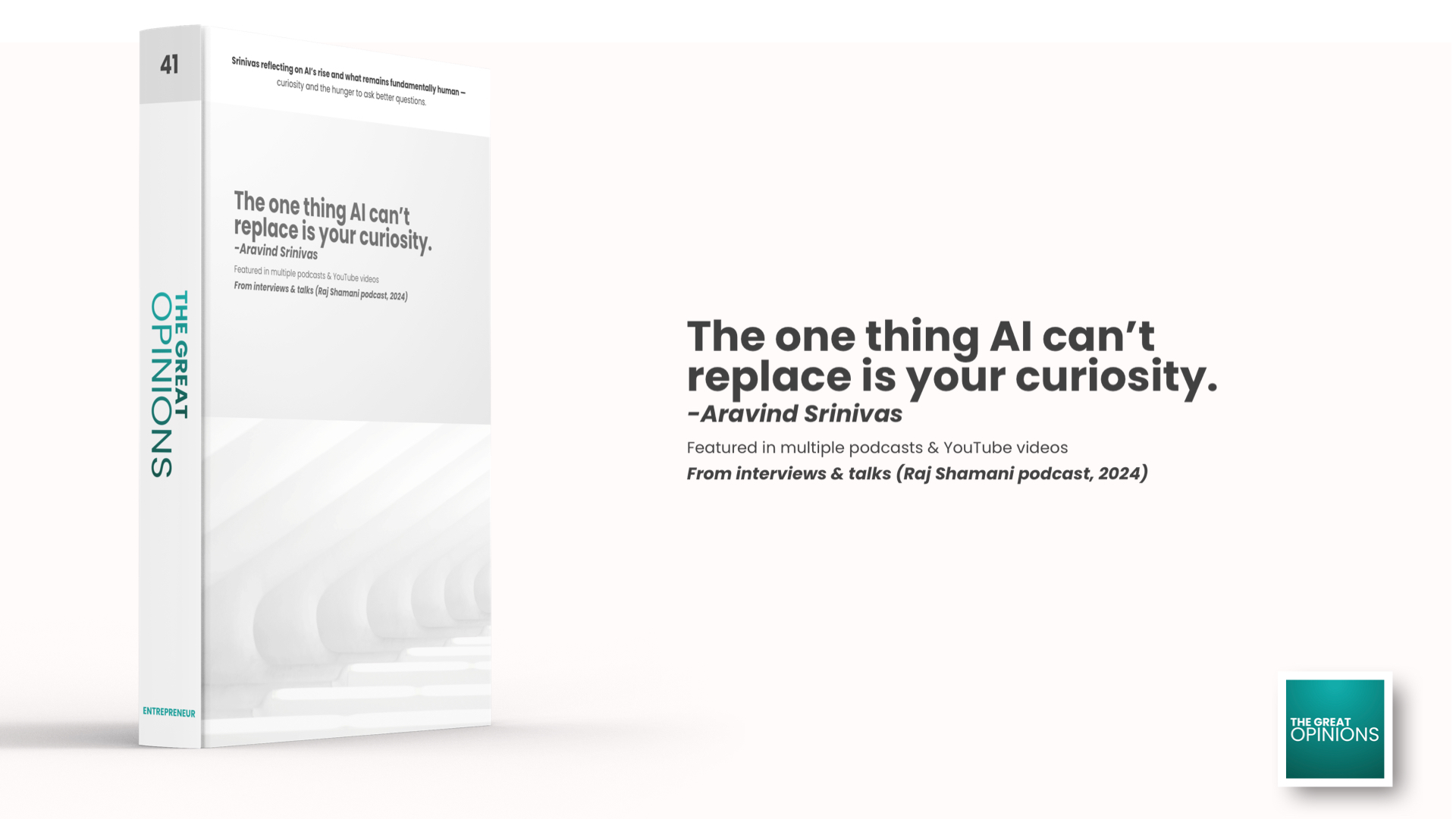The Philosophy of Money
Curiosity as compounding interest
Work harder.
Wake up earlier.
Sleep less.
That’s the hymn of the hustle church, and most young founders swallow it whole like stale communion bread. They believe that outworking the world will crown them kings.
Bukowski would’ve told them they’re fools. He hated that kind of theater. He’d say: “Work all you want, slave. The world doesn’t pay sweat. It pays leverage. It pays brains.”
That’s where Kunal Shah enters the scene. A man with no IIT badge, no Stanford MBA, no Silicon Valley godfather. A philosophy student from Wilson College, Bombay — about as far from the “model entrepreneur” as you can get in a country addicted to engineering degrees and pedigree.
And yet, he built two of India’s most defining startups. Sold one for hundreds of millions. Grew another into a multi-billion-dollar brand. And still he spends his days on Twitter writing things that sound less like startup wisdom and more like Bukowski lines dressed in tech-speak.
He tweets about chimpanzees and alpha males, about why power protects rather than dominates. He warns founders that when curiosity shrinks, their personal “LLM” stops learning and starts coasting. He tells kids that the real hack isn’t 100-hour weeks. It’s frameworks. Clarity. Outthinking.
“Success isn’t about outworking everyone—it’s about outthinking them.”
That’s his gospel. And unlike hustle bros, he doesn’t sell it with a protein shake or a motivational reel. He sells it with his life.
Look at FreeCharge: born in a time when paying bills was still a chore and smartphones were toys for the rich. Shah turned it into an addictive behavior — you’d pay bills not out of necessity but out of delight, because coupons made it fun. That wasn’t grind. That was psychology.
Look at CRED: he didn’t go after the billions of Indians still unbanked. He went after the tiny sliver who had credit, trust, and disposable income. While other founders screamed “inclusion,” Shah whispered “exclusivity.” Again, not grind. Thinking.
Bukowski would’ve approved. Not because Shah is rich. Bukowski didn’t care for rich men. But because Shah spits on pretense. He knows the game isn’t about showing up the earliest to the office. It’s about asking the questions nobody else dares.
This isn’t a fairy tale. It’s not even a startup story. It’s a human story. A middle-class boy who grew up reading philosophy instead of balance sheets. A man who doesn’t care how many hours you put in, but how many patterns you can see before others do.
If you’re looking for hustle porn, stop reading. But if you want to know how money bends toward those who outthink the room — then walk with me into the reel.
| Element | Details |
| Quote | “Success isn’t about outworking everyone—it’s about outthinking them.” |
| Speaker | Kunal Shah (entrepreneur, founder of CRED) |
| Origin / Source | Paraphrased from his public talks / tweets reflecting on leverage, not grind |
| Date & Place | 2024–25, various interviews and Twitter posts |
| Context | A philosophy contrasting hustle culture with clarity, curiosity, and systems-thinking — central to Shah’s journey as an entrepreneur. |
Chapter 1: The Philosophy of Money
Money was never just cash to Kunal Shah. It was behavior. It was trust. It was psychology in action.
At Wilson College, when his peers were memorizing philosophers for exams, Shah was chewing on the question: why do humans behave irrationally with money? Why does someone spend ₹500 on a coffee but haggle with a rickshaw driver over ₹10? Why does someone pay a late fee without a fight but demand discounts in restaurants?

Those contradictions became his playground.
He looked at economics, which reduced humans to “rational actors.” And he laughed. He looked at psychology, which focused on individual quirks. Too narrow. Philosophy gave him something wider — the ability to step back and see systems.
Years later, he would tweet about chimpanzees. About how alpha males weren’t the most aggressive, but the ones who protected. That wasn’t random trivia. It was his worldview distilled: real power protects ecosystems. In startups, the founders who protect users, who build trust, who give before they take — those are the ones who endure.
Money, then, was a mirror. It reflected who protected and who exploited. It exposed which businesses were grinding employees to dust and which were designing leverage that scaled without sweat.
For Shah, curiosity was his compound interest. He devoured books, ideas, conversations. Unlike most founders who stopped learning once they became “successful,” Shah saw success as the exact moment learning should accelerate. Stop learning, and your personal operating system freezes. Your inner “LLM” stops training.
And when that happens, money walks out.
Chapter 2: From Philosophy Student to Entrepreneur
Mumbai in the late 1990s was a noisy place to dream. Internet cafés buzzed with Orkut and Yahoo chatrooms. Mobile phones were bricks. Prepaid recharges ruled.
Kunal Shah, born in 1983 into a middle-class Gujarati family, wasn’t supposed to end up here. His parents wanted stability. A degree, a job, maybe a small business. Instead, their son walked into Wilson College to study philosophy — a subject nobody in the family understood, let alone valued.
Neighbors whispered: “What will he do with philosophy? Teach?”
But Shah was absorbing frameworks others ignored. While peers filled MBA prep centers, he was reading Aristotle, Indian logic, behavioral economics. He was asking: what makes people tick?
This “useless” degree gave him the one edge hustle culture couldn’t: perspective. He wasn’t drowning in Excel sheets. He was mapping human nature.
When he finally entered business, he wasn’t chasing trends. He was decoding behaviors. That difference — philosophy instead of finance — made him unpredictable. And unpredictability, in business, is power.
Chapter 3: FreeCharge – The First Spark
In 2010, India’s digital revolution was still crawling. Bill payments meant standing in lines. People hated it.
Shah’s insight was almost laughably simple: people hate paying bills, but they love discounts. So why not merge the two?
Thus was born FreeCharge. Pay a bill, get coupons. Suddenly, what was once a chore became a dopamine hit.
The early days were chaotic. Investors didn’t understand. Users were suspicious. Employees worked in cramped offices where coffee was rationed. But Shah didn’t push harder hours. He pushed sharper questions: how do we turn an obligation into a delight? How do we ride behavior, not fight it?
By 2015, FreeCharge had millions of users. Snapdeal came calling with a $400 million acquisition. It was one of India’s largest startup exits at the time.
The boardroom deal was surreal. Shah, the philosophy graduate neighbors once mocked, now sat across venture capitalists debating hundreds of millions. He signed. He smiled. And he walked out richer than he’d ever imagined.
But the joy was bittersweet. Selling FreeCharge felt like giving away his first child. Watching Snapdeal later stumble with it confirmed his fear: sometimes the buyer doesn’t love the baby like the builder does.
Lesson learned: exits give you money. But they also rob you of your creation’s destiny.
Chapter 4: CRED – Rewriting Trust
After FreeCharge, Shah could’ve retired. But curiosity doesn’t retire.
In 2018, he returned with a new obsession: India’s credit culture. Most Indians didn’t trust credit. Those who had it often misused it. Banks punished rather than rewarded responsibility.
Shah flipped the lens. He said: what if we celebrate trust? What if we reward the top 1% who paid bills on time?
Thus was born CRED.
Critics scoffed. Why build for the elite? Why not the masses? Shah ignored them. He knew exclusivity builds aspiration. He knew rewarding good behavior scales better than punishing bad.
CRED was more than an app. It was behavioral design. Gamification, rewards, a sleek interface that felt like a club. Pay your bill, earn coins, unlock rewards. Suddenly, responsible credit behavior was cool.
By 2025, CRED was valued at $6+ billion. Shah’s stake in CRED made him a billionaire on paper. Ads featuring celebrities filled the airwaves. Critics who once laughed now scrambled to decode his playbook.
But for Shah, the real victory wasn’t valuation. It was proving that money flows to trust. Protect users, protect behavior, protect systems — just like those chimpanzee alphas he wrote about.
Chapter 5: Net Worth, Portfolio, and Forbes Recognition
By 2025, Forbes listed Kunal Shah with an estimated net worth of around $1 billion. He was now one of India’s most visible entrepreneurs.
But his portfolio stretched beyond CRED. He became an angel investor in dozens of startups. He loved spotting patterns early. His bets weren’t always about ROI — they were about curiosity. If a founder was solving a behavior puzzle, Shah wanted in.
Still, net worth was just a scoreboard. When reporters asked about wealth, Shah would brush it off. “Reputation compounds faster than money,” he once said. “And curiosity pays longer dividends.”
Chapter 6: Work-Life Balance and Entrepreneurial Advice
In a country that worships 16-hour workdays, Shah stood apart. He openly mocked burnout as a badge of honor.
His entrepreneur advice: stop looking busy. Start thinking clearly. Protect your curiosity.
He recommended books across disciplines — not management clichés, but behavioral economics, history, philosophy. His point: innovation comes from intersections, not silos.
Young founders saw him less as a CEO and more as a philosopher-coach. They didn’t just want his capital. They wanted his clarity.
And clarity, he insisted, came from balance. From not letting success shrink curiosity.
Chapter 7: Life Story and Legacy (~600 words)
From a middle-class boy in Mumbai → to a philosophy graduate ridiculed for choosing a “useless” subject → to a founder who built two unicorns → to a billionaire philosopher-investor.
That’s Kunal Shah’s story.
But legacy? Legacy isn’t FreeCharge or CRED alone. Legacy is the cultural correction he offers to Indian entrepreneurship. He tells a generation hypnotized by hustle reels that the real work isn’t in the grind. It’s in the frameworks. In curiosity. In outthinking.

And that may be his greatest wealth: giving India’s founders permission to think deeper, not just work longer.
“Success isn’t about outworking everyone—it’s about outthinking them.”
That line isn’t decoration. It’s Shah’s operating system.
In his story, money was never the goal. It was a by-product. The real pursuit was clarity. And clarity is born not from sweat, but from curiosity.
When the noise of hustle fades, what remains is the quiet power of those who think deeper. That’s Shah’s legacy. That’s his currency.
Sources:
